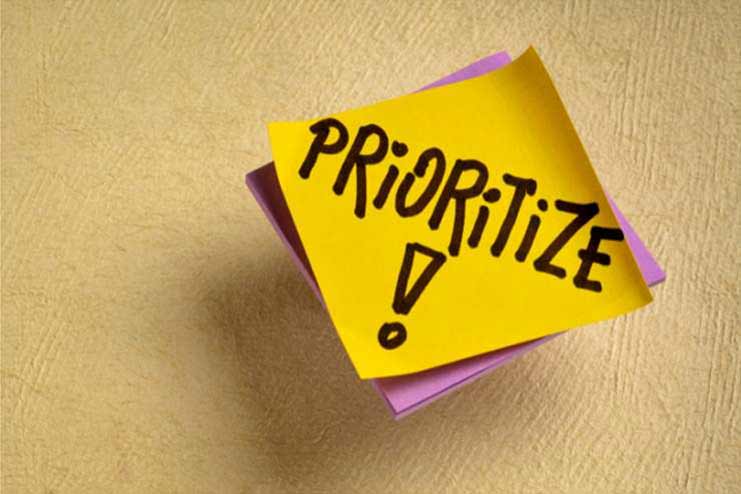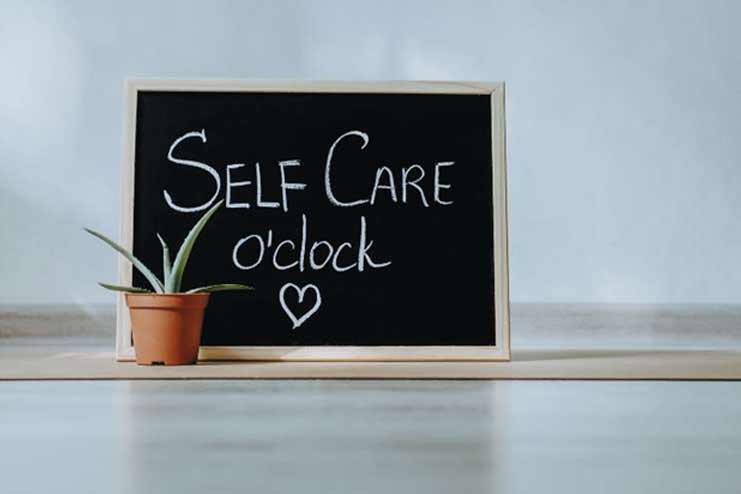Affiliate Disclaimer
Some links in this article are affiliate links. We may earn a small commission if you make a purchase through these links, at no extra cost to you. We only recommend products we find useful to our readersIn today’s fast-paced, digitally connected world, feelings of overwhelm are more common than ever. The constant barrage of responsibilities, from work pressures to personal obligations, can make it challenging to find a sense of calm.
With the rise of multitasking and the expectation to be available 24/7, it’s easy to feel like life is spiraling out of control. This mental and emotional overload not only impacts our well-being but can also affect our productivity and relationships. However, by incorporating mindful strategies into our daily routine, it’s possible to regain balance, restore clarity, and navigate life more easily.
Below, we have listed seven practical strategies for controlling overload and achieving a sense of balance.
1. Acknowledge and Accept

Recognizing that everyone feels overwhelmed is a significant first step toward developing efficient coping mechanisms or strategies. In our fast-paced culture, it is not uncommon for people of all ages, professions, and backgrounds to feel overwhelmed. By publicly acknowledging the prevalence of these feelings, individuals can start the process of dismantling the stigma associated with them.
It is important to note that acceptance does not mean resignation; instead, it serves as a basis for developing resilience and implementing solutions to manage modern life’s difficulties. When individuals acknowledge the commonality and transforming potential of acceptance, they pave the way for a better and more balanced approach to dealing with feelings of overload.
2. Prioritize and Delegate

Mastering prioritization can help overcome feeling overwhelmed and handle tasks more effectively. By distinguishing between urgent and vital obligations, individuals can simplify their focus and effectively devote their time. Prioritization increases productivity and significantly reduces the stress associated with an overloaded calendar.
The deliberate practice of delegation emerges as a helpful tool in reducing the organization’s total weight. Through delegation, individuals can spread duties according to their strengths and areas of expertise, acknowledging that one person cannot take on all responsibilities.
This collaborative approach guarantees that every facet of a project is given the attention it requires. In the end, embracing the principles of prioritization and delegation becomes a cornerstone in navigating the intricacies of a demanding and fast-paced environment.
Also, read: Finding Gratitude When Life is Hard: Strategies for Tough Times
3. Create a Mindful Routine

Mindfulness is a powerful antidote to the turmoil of modern living. It can be incorporated into a daily routine to provide increased attention and a sense of equilibrium. Cultivating awareness and intention in every task is required to embrace the concept of a mindful daily routine. Adopting mindfulness into one’s daily routine, whether it be morning routines, work chores, or leisure activities, can be transformative.
Some practical suggestions include beginning each day with a moment of appreciation, establishing clear intentions for the day, and regularly engaging in brief mindfulness exercises such as deep breathing.
By incorporating mindfulness into everyday activities, individuals can reduce stress and cultivate a profound sense of presence in each moment. This, in turn, can contribute to a more centered and satisfying life.
Also, read: What Happens To The Body When You Live A Sedentary Lifestyle? 13 Possible Complications!
4. Set Boundaries for Self-Care

There is a significant correlation between prioritizing self-care behaviors and stress reduction. Recognition of one’s limitations and establishing clear boundaries are fundamental components of good self-care. In addition to preventing burnout, these help maintain a healthy equilibrium between one’s responsibilities and personal needs.
Implementing boundaries is an empowering act of self-preservation, whether it involves setting aside time for relaxation and leisure activities or just saying “no” when it is essential to do so.
Also, read: 8 Foods To Consume To Maintain Electrolyte Balance For Healthier Lifestyle
5. Embrace the Power of ‘No’

Empowering oneself to say “no” to excessive obligations is a liberating act in a world that frequently promotes activity. It gives people the flexibility to put their health and happiness first and concentrate on the things that are important to them. By embracing the power of the word “no, you can assert your limits and declare your self-worth.
This uncomplicated yet powerful word provides an incalculable amount of relief, easing the stress of overcommitting oneself and making living a more balanced and satisfying life possible.
Individuals not only protect their time and energy by realizing the power that comes with setting appropriate limits, but they also build a sense of empowerment that reverberates favorably through different facets of their personal and professional lives after they have done so.
Also, read: 14 Ways To Main A Healthy Lifestyle For A Rejuvenated Mind And Body
6. Break Down Goals into Manageable Steps

Dreams can be transformed into attainable milestones by breaking down significant goals into approachable steps. The powerful motivation that results from taking each small step fuels a sense of accomplishment and propels people forward.
Celebrating incremental milestones strengthens individuals’ commitment to the broader objective, fostering resilience and sustaining motivation over time. This strategy makes the journey more doable and instills a positive mindset by reinforcing that progress, regardless of how modest it may be, is a testimonial to one’s capability and determination.
7. Connect with Support Systems

It is essential to one’s emotional well-being to establish connections with support systems to successfully navigate the challenges that life presents. Seeking assistance from others, whether from friends, family, or professionals, is a courageous step in developing or maintaining resilience. When you share your emotions with someone you can trust, you relieve the stress of being alone, strengthen links, and deepen connections with another person. It contributes to a sense of belonging and understanding, transcending beyond the immediate alleviation it provides.
Support networks provide individuals with essential insights, guidance, and encouragement, enabling them to handle daunting situations with better self-assurance. Because vulnerability is a source of strength and that human connection has the potential to heal, it is essential to establish a strong support network to lay the groundwork for emotional resilience and overall well-being.
Conclusion
These seven strategies offered provide a thorough arsenal for dealing with overwhelm in today’s fast-paced world. Together, these methods pave the path for a more balanced and meaningful existence. These strategies range from accepting and acknowledging feelings to prioritizing chores, establishing a mindful routine, setting boundaries, embracing the power of ‘no,’ breaking down goals, and interacting with support systems.
It is a call to action for readers to take proactive control of their well-being and implement these approachable ideas. By adopting these techniques into their daily lives, people can develop a sustainable stress management strategy that increases resilience and empowers them to maintain balance and empowerment in the face of life’s challenges.
References
- https://psychcentral.com/stress/how-to-deal-with-feeling-overwhelmed
- https://gettingresults.com/recognize-feeling-overwhelmed
- https://medium.com/illumination/when-we-feel-overwhelmed-we-have-an-opportunity-970958732847
- https://wenlintan.com/5-types-of-overwhelm
- https://www.southernpines.carolinacounselingservices.com/understanding-overwhelm-and-its-power-over-you
- https://www.wework.com/ideas/professional-development/creativity-culture/how-to-prioritize-tasks
- https://www.timecamp.com/planner/how-to-prioritize-tasks
- https://edrawmind.wondershare.com/task-management/how-to-prioritize-tasks.html
- https://www.thesimplicityhabit.com/mindful-habits
- https://www.mindful.org/take-a-mindful-moment-5-simple-practices-for-daily-life
- https://www.mayoclinic.org/healthy-lifestyle/consumer-health/in-depth/mindfulness-exercises/art-20046356
- https://insighttimer.com/meditation-topics/morning-routine
- https://www.mayoclinichealthsystem.org/hometown-health/speaking-of-health/setting-boundaries-for-well-being
- https://www.webmd.com/mental-health/setting-boundaries
- https://www.realsimple.com/health/mind-mood/emotional-health/how-to-set-boundaries
- https://www.bossedup.org/podcast/episode301
- https://resources.strategiccoach.com/the-multiplier-mindset-blog/it-takes-courage-to-say-no-tips-for-mastering-this-key-skill
- https://teyxo.com/lifestyle/how-saying-no-can-empower-your-life
- https://disciplinedrebel.com/how-to-break-down-goals-into-steps
- https://jayodonnell.com/how-to-break-big-goals-down-into-achievable-steps
- https://www.wendaful.com/2017/12/breaking-down-goals
- https://hbr.org/2020/01/to-achieve-big-goals-start-with-small-habits
- https://highlandspringsclinic.org/the-benefits-and-importance-of-a-support-system
- https://www.ncbi.nlm.nih.gov/pmc/articles/PMC2921311
- https://www.verywellmind.com/social-support-for-psychological-health-4119970
- https://www.mentalhealthfirstaid.org/2020/08/the-importance-of-having-a-support-system




















